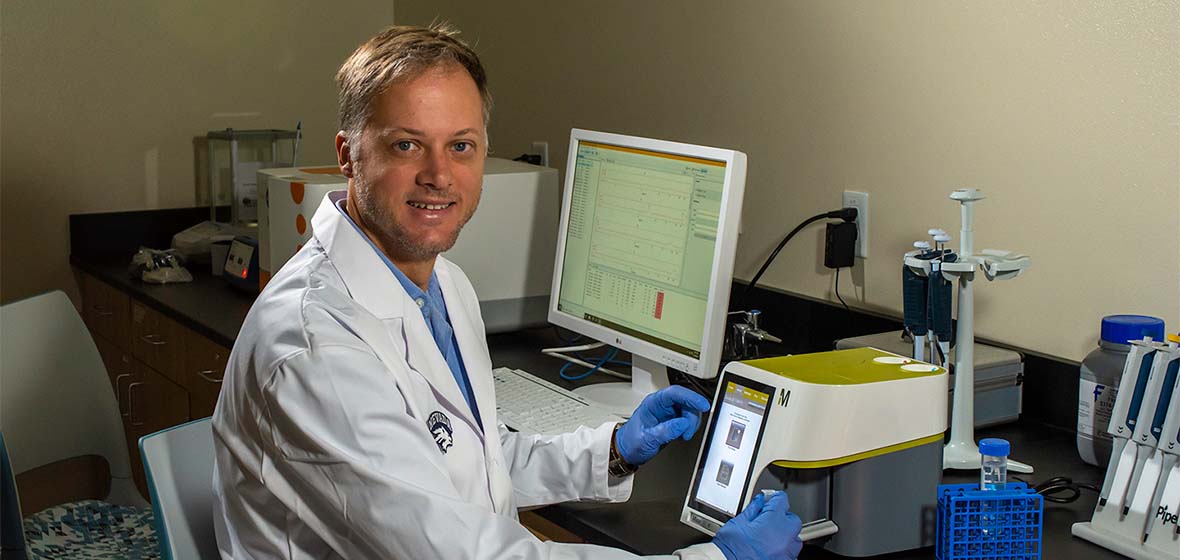The University of Nevada, Reno's College of Agriculture, Biotechnology & Natural Resources welcomes Luis Schütz to the faculty as a lecturer and researcher.
Schütz has studied bovine (cattle) reproductive physiology for more than a decade. Recently, he began research in the field of epigenetics, which includes focus on the effects of animal management methods, nutrition and environmental factors on reproduction efficiency and health. Schütz completed his postdoctoral research at the Irma Lerma Rangel College of Pharmacy at the Texas A&M Health Science Center and completed graduate work at Oklahoma State University, where he received the Distinguished Graduate Fellowship two years in a row.
"I am very happy to have chosen the University of Nevada, Reno and this city as my home," said Schütz. "I hope I can establish a meaningful research program and be impactful as a teacher and mentor for students, just like the mentors I was fortunate to have in my life."
Schütz will develop and teach undergraduate and graduate courses in the areas of animal physiology and reproduction. In addition, he plans to continue his research as part of the College's Nevada Agricultural Experiment Station, establish research programs for reproductive physiology and epigenetics at the University, and investigate the impact of a semi-arid climate on the reproductive efficiency of cattle.
"Schütz's interest in dairy cattle will greatly increase the breadth of knowledge in the animal science curriculum," said Tamzen Stringham, chair of the College's Department of Agriculture, Veterinary & Rangeland Sciences. "He is also providing helpful science-based information to Nevada's dairy industry."












